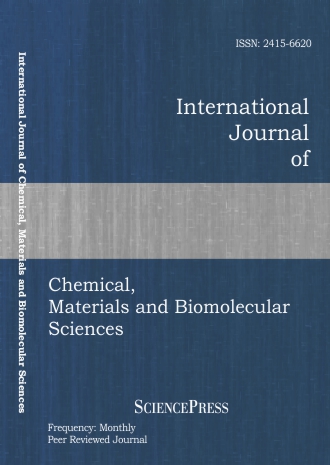
Scholarly
Volume:6, Issue: 1, 2012 Page No: 1 - 4
International Journal of Chemical, Materials and Biomolecular Sciences
ISSN: 2415-6620
1613 Downloads
Structure and Magnetic Properties of Nanocomposite Fe2O3/TiO2 Catalysts Fabricated by Heterogeneous Precipitation
The aim of our work is to study phase composition, particle size and magnetic response of Fe2O3/TiO2 nanocomposites with respect to the final annealing temperature. Those nanomaterials are considered as smart catalysts, separable from a liquid/gaseous phase by applied magnetic field. The starting product was obtained by an ecologically acceptable route, based on heterogeneous precipitation of the TiO2 on modified g-Fe2O3 nanocrystals dispersed in water. The precursor was subsequently annealed on air at temperatures ranging from 200 oC to 900 oC. The samples were investigated by synchrotron X-ray powder diffraction (S-PXRD), magnetic measurements and Mössbauer spectroscopy. As evidenced by S-PXRD and Mössbauer spectroscopy, increasing the annealing temperature causes evolution of the phase composition from anatase/maghemite to rutile/hematite, finally above 700 oC the pseudobrookite (Fe2TiO5) also forms. The apparent particle size of the various Fe2O3/TiO2 phases has been determined from the highquality S-PXRD data by using two different approaches: the Rietveld refinement and the Debye method. Magnetic response of the samples is discussed in considering the phase composition and the particle size.
References:
[1] B. Pal, M. Sharon, G. Nogami, "Removal of natural organic matter from